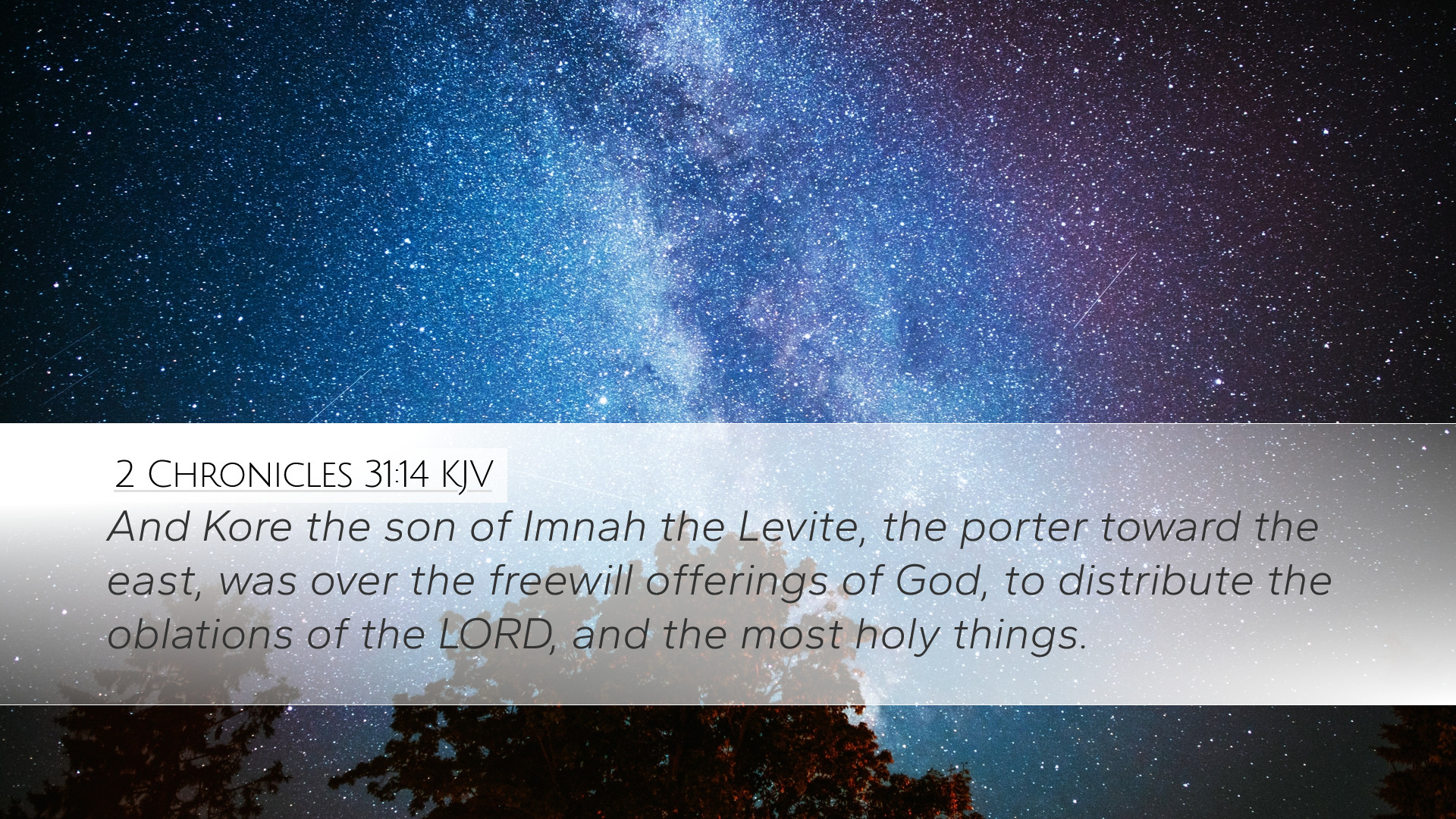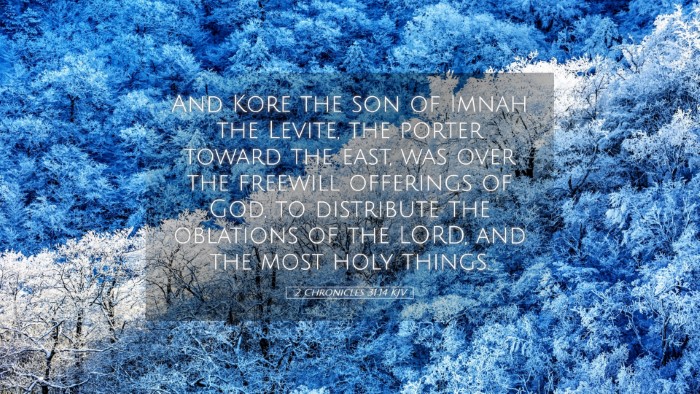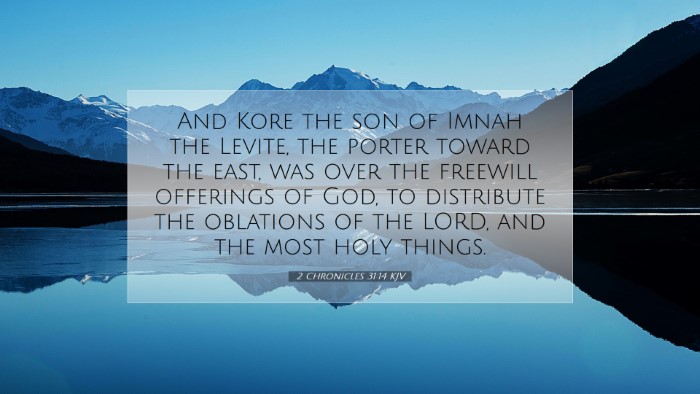Commentary on 2 Chronicles 31:14
Verse: "And Kore the son of Imnah the Levite, the porter toward the east, was over the freewill offerings of God, to distribute the oblations of the Lord, and the most holy things." (2 Chronicles 31:14)
Introduction
This verse captures a significant moment in the religious reform initiated by King Hezekiah. It highlights the roles designated to the Levites, particularly emphasizing those in charge of the offerings directed towards the temple service. Public domain commentaries provide profound insights into the religious, cultural, and practical implications of this appointment.
The Role of the Levites
The Levites, as described extensively in the Old Testament, had specific roles in service to God and the community. Their duties included the care of the temple, the execution of rituals, and the oversight of offerings. Matthew Henry notes that the Levites were chosen among the people to oversee the spiritual life, indicating a structured and organized approach to worship that was pivotal during Hezekiah’s reign.
Adam Clarke elaborates on the significance of the Levites being involved in the administration of the offerings. He points out that they were not only custodians of the temple but also played a crucial part in the spiritual economy of Israel by ensuring that the offerings presented to the Lord were managed properly. This responsibility implied a high level of trust and dedication to the ministry.
Kore the Levite: A Model of Faithful Service
Kore, the son of Imnah, is specifically named in this verse, illustrating the individual roles within the corporate ministry. Albert Barnes emphasizes that such designations highlight the importance of individual accountability in the service of God. He suggests that Kore’s leadership in distributing the freewill offerings demonstrates not only his administrative capabilities but also his commitment to the sacred duties entrusted to him.
The term “porter” mentioned in the verse, denotes a guardian or gatekeeper role, which is crucial in maintaining the sanctity of the temple premises. This reflects the Levites' responsibility in protecting the holiness of God’s dwelling. Matthew Henry further illustrates that being a porter implies a readiness to serve within the house of God, standing vigil over the sacrificial rites that were central to Israelite worship.
The Nature of Freewill Offerings
The mention of "freewill offerings" is particularly noteworthy. Adam Clarke defines these offerings as voluntary and filled with joy, distinguishing them from obligatory tithes. The spiritual implications of freewill contributions reflect a heart posture of gratitude and reverence towards God, which was a critical aspect of the worship that Hezekiah reinstated. He notes that such offerings were instrumental during times of restoration, as they symbolized the people's renewed commitment to God after periods of neglect.
The Theological Importance of Distribution
Distribution of offerings implies a stewardship role that is crucial in spiritual contexts. Albert Barnes explains that the act of distributing the oblations involved not just handing out the offerings but ensuring they were utilized for sacred purposes. This aligns with the biblical principle of stewardship, highlighting that what is given to God must be handled with utmost care and respect, thus ensuring its sanctity and intended use for divine worship.
Implications for Contemporary Worship
The appointment of Kore as a Levite porter reminds contemporary believers, including pastors and theologians, of the significance of roles within the church. Matthew Henry encourages leaders to recognize that every position of service—be it in administration, teaching, or guarding the ethos of the church—is vital for fostering a healthy spiritual environment. The dedication displayed by Kore serves as an excellent example of how even ‘porters’ in the church carry the weight of spiritual responsibility.
- Leadership and Service: Kore exemplifies that every role in the church is significant and should be approached with intentionality and commitment.
- The Role of Offerings: Freewill offerings are a testimony to the heart’s condition before God and should be encouraged in communal worship.
- Spiritual Stewardship: Proper handling and distribution of offerings reflect the integrity and faithfulness leaders must maintain.
Conclusion
2 Chronicles 31:14 encapsulates critical themes around service, responsibility, and devotion within the context of worship. The insights garnered from public domain commentaries underscore the necessity for faithfulness and diligence in the ministry. Thus, Kore’s role as a Levite porter serves as an eternal reminder for present-day leaders about the privilege and duty of serving within the house of God.
Understanding these biblical principles can guide pastors, students, theologians, and scholars towards a greater appreciation of the nuances of biblical narratives, inviting deeper exploration of how faith is expressed through service.


